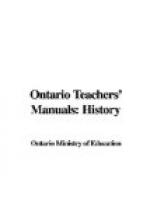Climate: Though England lies north of the fiftieth parallel, the moist southwest winds from the ocean temper the climate, making the winters mild and the summers cool, a climate favourable to the growth of a vigorous race. There is an abundant rainfall.
Products: On the plains a fertile soil supported a large agricultural, and therefore self-contained, population in the earlier days, and the slopes furnished pasturage for cattle and sheep. Proximity to coal is an almost indispensable condition for industries, though other considerations come in. In the hill country coal and iron, essential materials for a manufacturing nation, lie near to the deposits of limestone necessary for smelting the iron ore. The coal-fields on or near the coast are centres of shipbuilding; and the interior coal-fields the centres of the great textile industries. Because of her insular position and fleets of ships the raw products from other countries can be brought to England easily and cheaply, and then shipped out as manufactured goods.
Consult: A Historical Geography of the British Empire. Hereford B. George, Methuen & Co., London. The Relations of Geography and History. Hereford B. George, Clarendon Press, Oxford.
ANOTHER FORM OF THE LESSON
The teacher will announce the topic for discussion, namely, how the history of Great Britain has been affected by her insular position.
T.—Trace
on the map the coast line of Great Britain. (Pupil
does
so.) What do you notice
about the coast line in comparison to the
size of the Island?
P.—It is very irregular and has a good many bays and inlets.
T.—Would
this have any effect on the life and occupations of
the
people?
P.—They would almost have to be sailors.
T.—In other words, a maritime people. Do you think that is usual? Look at the coast line of Japan. (Class sees that it is much the same as that of Britain: the Japanese are also a maritime race.) What is one occupation the people would follow?
P.—They
would probably be fishermen. (The teacher may give
some
idea of the extent of
the fishing. The same may be done with each
new point, as it comes
up.)
T.—What else would they do?
P.—They would probably engage in trade or commerce.
T.—With which countries? Study the map for a moment.
P.—With those on the west of Europe, and with America.
T.—Yes.
You must notice that Great Britain is situated very
favourably for trade
with the whole world. Is there anything on the
map to show this?
P.—There
are a great many lines on the map that show the water
routes from Britain
to almost every country in the world.




